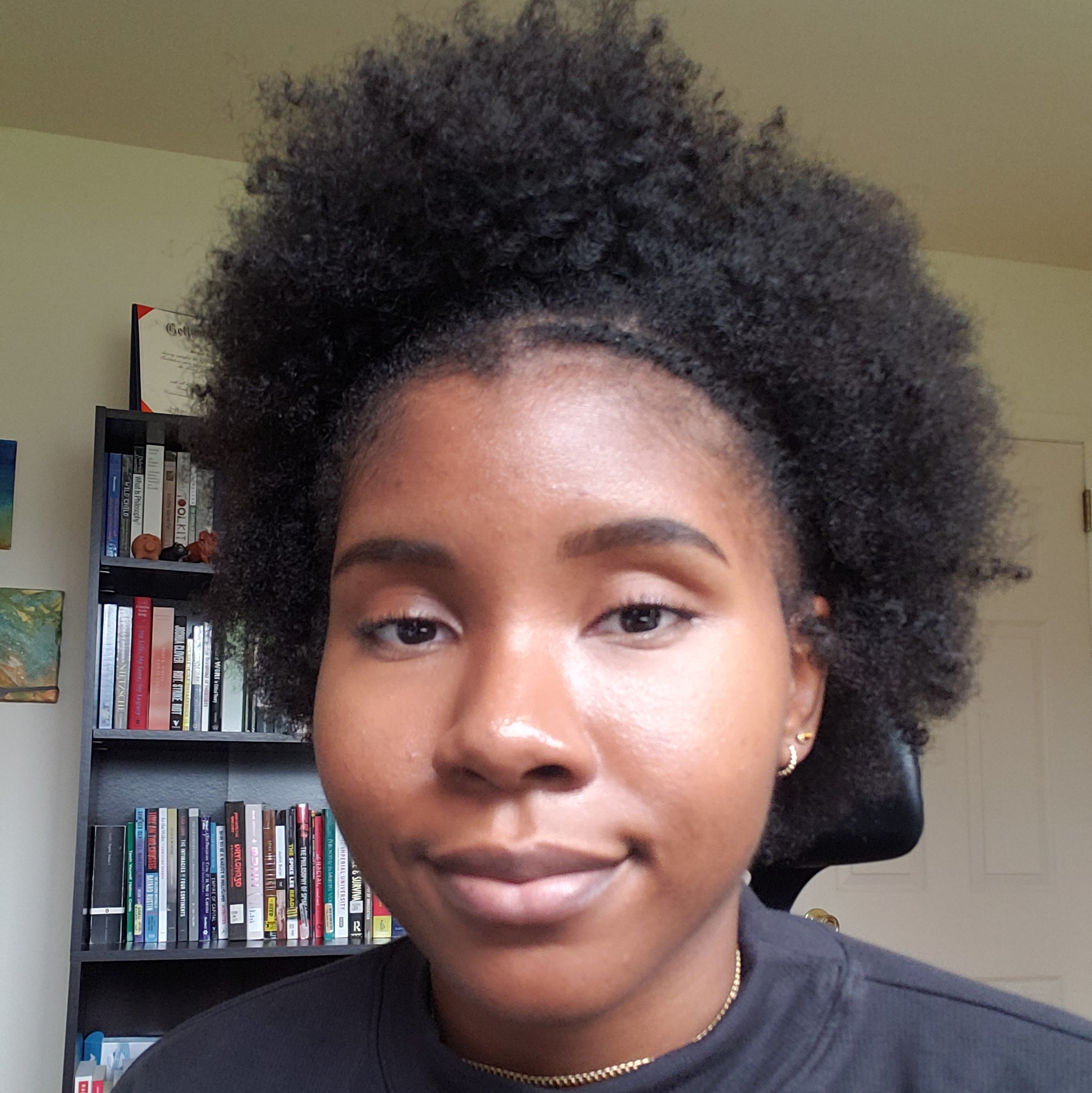Ashley Lamarre ’18

Class Year
2018
Area(s) of Study
African American studies and philosophy
Current Job
Fourth-year dual-title Ph.D. candidate in the Philosophy and African American and Diaspora Studies programs at Penn State University
Ashley Lamarre ’18 is a fourth-year dual-title Ph.D. candidate in the Philosophy and African American and Diaspora Studies programs at Penn State University. Her research includes Africana Philosophy, Black Feminist Philosophy, and Critical Philosophy of Race, and she holds two graduate assistantships: “One of my assistantships is working as a digital content & social media manager for the Penn State Humanities Institute. My second assistantship is supporting the Cultivating Underrepresented Students in Philosophy (CUSP) program at Penn State. The program hosts a Fall workshop for underrepresented Undergraduate and Master's students applying for graduate school and a Summer Institute for underrepresented undergraduate students curious about pursuing a graduate degree in Philosophy.”
Why did you choose Lake Forest College? I chose Lake Forest College due to a generous scholarship. I decided to stay at Lake Forest College due to excellent Professors who were both challenging and supportive, the abundance of opportunities to explore areas of interest (both academically and extracurriculars), and the chance to take advantage of the arts and culture available in Chicago.
What motivated you to major in African American studies? What motivated me to major in African American Studies was that the major became available while I attended Lake Forest. I was already taking several of the introductory courses, such as history and literature courses before it became a major. I was excited to continue taking more classes on philosophy and culture. Additionally, I was already a Philosophy major with a particular interest in African American philosophy, so I thought double-majoring with African American Studies could better aid me in pursuing my interdisciplinary academic interests.
What do you like best about the African American Studies department? What I liked best about the African American Studies department are the Professors and the other students in the major. The Professors were some of my favorite of all the courses in my undergraduate career. They facilitated difficult but necessary discussions in class. They often found unique ways to connect our course to actual events and opportunities in Chicago. They pushed me academically, and they supported the students both in and out of the classroom. The other students in the major also played a significant role because majors also tended to be very involved in the United Black Association (UBA). As a previous member of UBA myself, it strengthened our ability to support each other and foster a community on campus.
How does your work in the African American studies department help you engage with the world in a new way, and how do you see this giving you an edge beyond college? My work in the African American Studies department aided in helping me understand that I wanted to explore a more interdisciplinary route for my graduate education. Being a double-major in Philosophy and African-American Studies helped me realize that my research interest could not be contained to either department alone. This realization helped me narrow down the graduate programs I wanted to apply to because I sought out programs that allowed me to continue to be situated in both departments. This lead to my application and acceptance to Penn State University and their dual-title Philosophy and African American and Diaspora Studies program. I believe being a double major aided in making me a good candidate for this program.
What’s one thing you want others to know about majoring in African American studies? I want others to know that majoring in African American Studies at Lake Forest College means an interdisciplinary exploration of the discipline. This major is highly compatible with several other majors available at the college and can contribute to a more robust and nuanced understanding of your other studies. It also opens up the internship opportunities students can explore in the Chicago "In The Loop" program. For instance, I interned at the Haitian American Museum of Chicago to examine Caribbean identities in the US while also learning about my history. I would think that students might also be interested in interning for other non-profit, not-for-profit, and social justice groups in Chicago as well. These internships could be a great way to merge theory and practice and a great way of engaging in public humanities.

